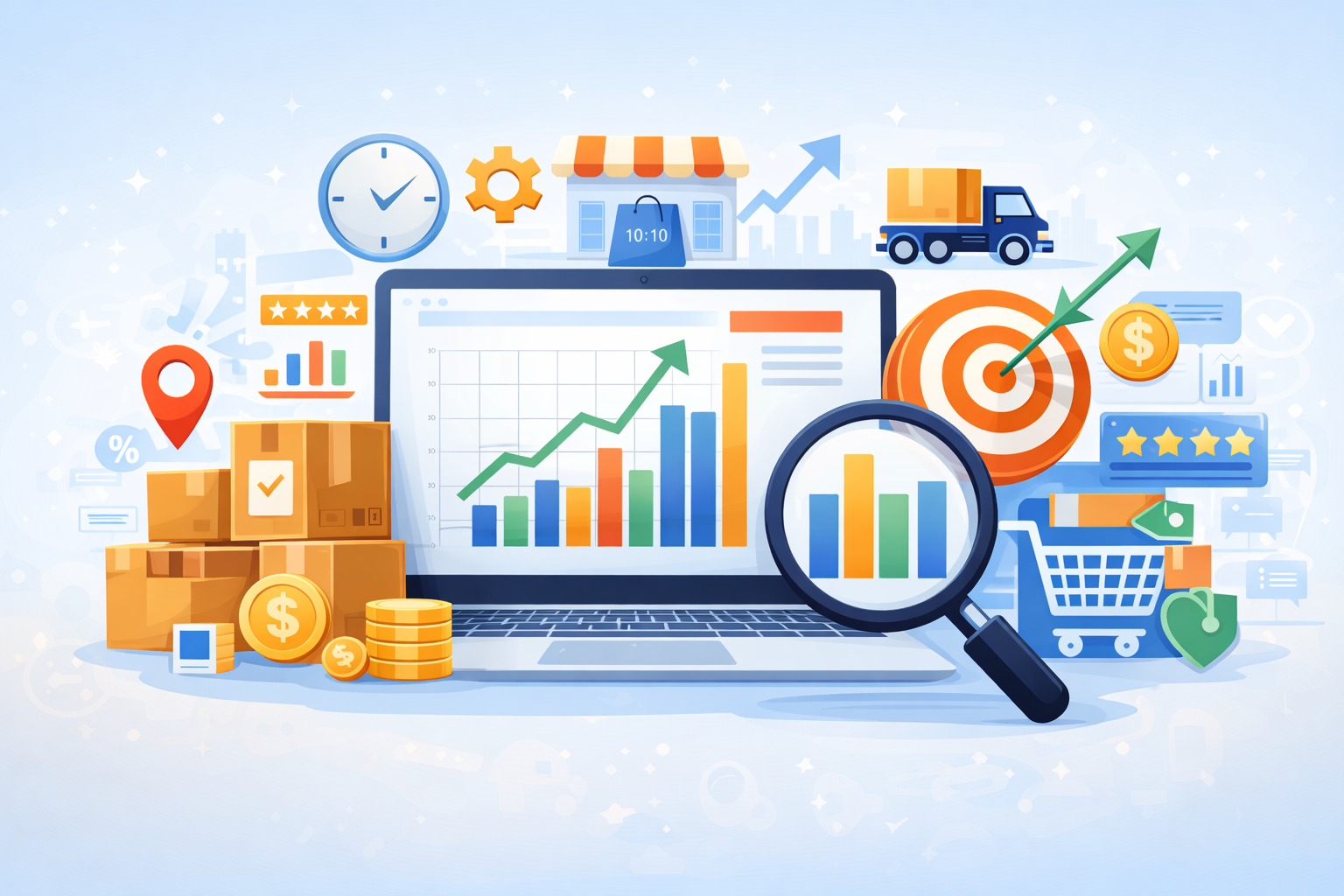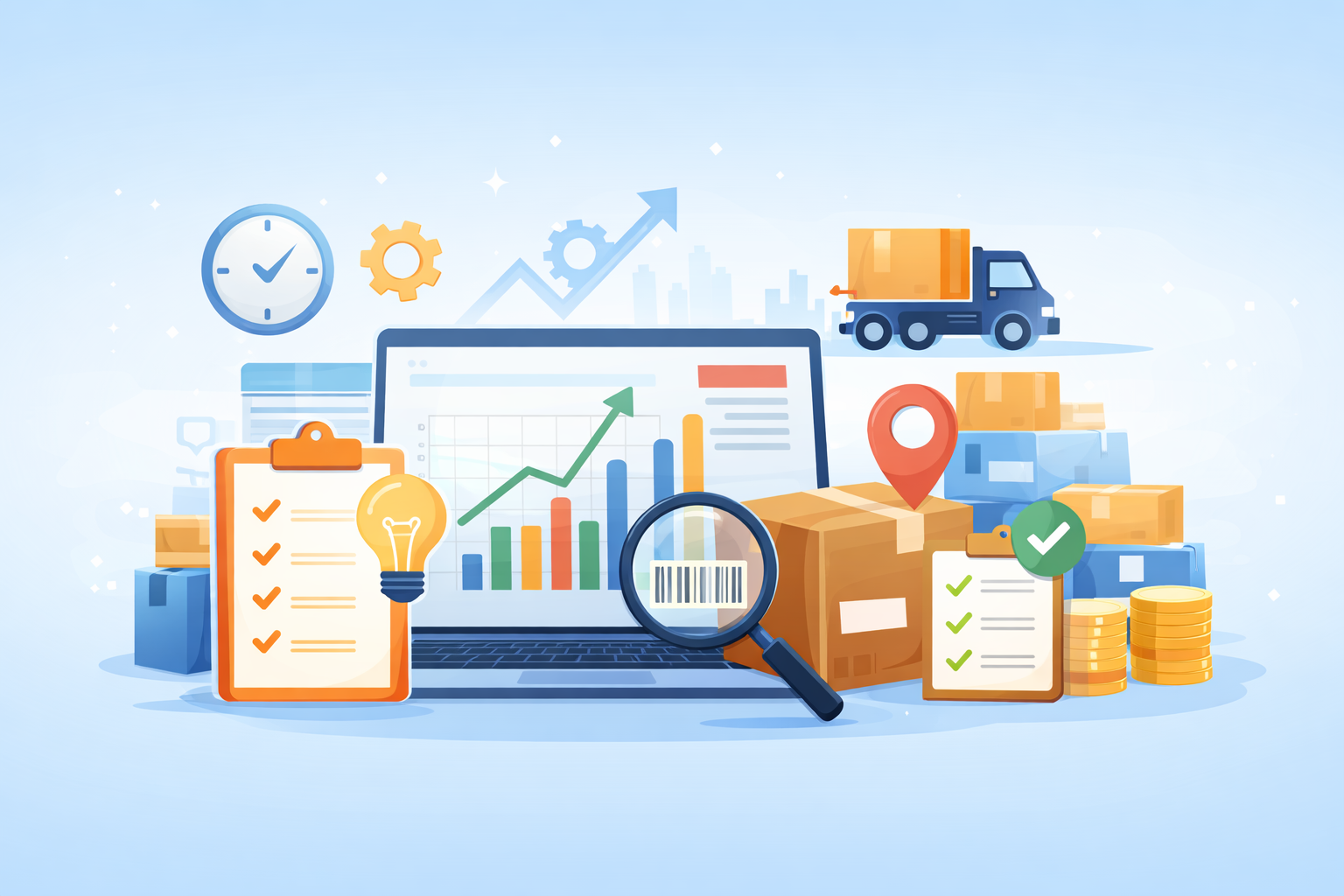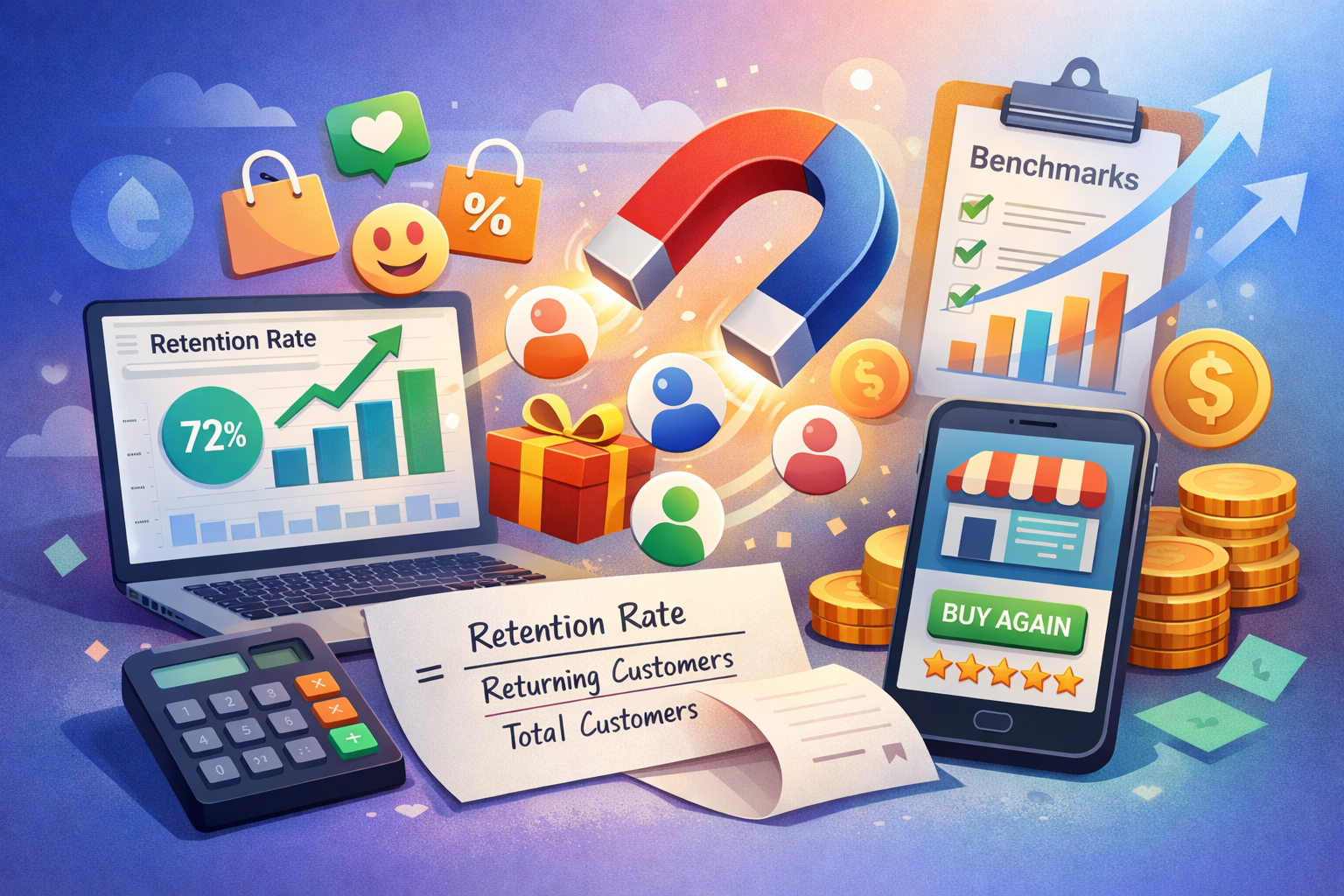Try Zipchat in Action!
Enter your store URL to see how Zipchat would behave.

Email marketing is a powerful tool for growing sales on Shopify. By effectively utilizing email campaigns, you can engage with your customers, build brand loyalty, and ultimately drive conversions. In this article, we will cover everything you need to know about setting up email marketing on Shopify, from understanding its importance to choosing the right tools and creating effective campaigns.
Understanding the Importance of Email Marketing
Email marketing plays a crucial role in e-commerce. It allows you to directly communicate with your customers and potential customers, delivering personalized messages directly to their inbox. According to a study conducted by Statista, email marketing has an average return on investment (ROI) of 3800%, making it one of the most cost-effective marketing strategies available.
The Role of Email Marketing in E-commerce
Email marketing helps you establish a direct line of communication with your customers, allowing you to nurture relationships and build trust. It enables you to stay top-of-mind with your audience, reminding them of your brand and enticing them to make a purchase. Moreover, email marketing is essential for customer retention, as it increases the likelihood of repeat purchases and fosters long-term loyalty.
Imagine this scenario: a customer visits your online store, adds a few items to their cart, but doesn't complete the purchase. Without email marketing, you might lose that customer forever. However, with a well-crafted abandoned cart email, you can remind them of the items they left behind and offer an incentive to complete the purchase. This personalized approach can significantly increase your chances of converting a potential customer into a paying one.
Benefits of Email Marketing for Shopify Stores
Email marketing offers numerous benefits for Shopify stores. Firstly, it helps drive traffic to your website by directing subscribers to your latest products, promotions, and blog posts. Secondly, it enables you to segment your audience based on their behavior, preferences, and purchase history. This allows you to deliver targeted, personalized content that resonates with each subscriber, leading to higher engagement and conversion rates. Lastly, email marketing provides valuable insights into your customer base, allowing you to analyze metrics such as open rates, click-through rates, and revenue generated from each campaign.
Let's dive deeper into the power of segmentation. By dividing your subscribers into different groups based on their interests or purchase history, you can send highly relevant emails that speak directly to their needs. For example, if you run a fashion store, you can segment your audience into categories like "men's clothing," "women's clothing," and "accessories." This way, you can send targeted emails showcasing the latest trends in each category, increasing the chances of conversion and customer satisfaction.
In conclusion, email marketing is an indispensable tool for e-commerce businesses, providing a direct line of communication with customers, nurturing relationships, and driving sales. Its ability to personalize messages, segment audiences, and provide valuable insights makes it a must-have strategy for any Shopify store looking to thrive in the competitive online marketplace.
Setting Up Your Email Marketing Strategy
Before diving into email marketing, it's important to define your strategy to ensure optimal results. Start by identifying your target audience. Who are your ideal customers, and what interests or pain points do they have that your products or services can solve? By understanding your audience, you can tailor your content to resonate with their needs.

Furthermore, conducting market research can provide valuable insights into consumer behavior and preferences. Analyzing data such as demographics, purchasing habits, and online behavior can help you create more targeted and effective email campaigns. Consider using tools like surveys, focus groups, or analytics software to gather relevant information about your audience.
Defining Your Email Marketing Goals
Next, define your email marketing goals. Are you looking to increase sales, acquire new customers, or improve customer retention? Having clear goals will guide your email marketing efforts and enable you to measure success. It's crucial to set specific and measurable objectives, such as increasing open rates by 10% or generating $X in revenue from email campaigns.
Moreover, aligning your email marketing goals with your overall business objectives is essential for driving long-term success. Consider how your email campaigns can support larger company goals, such as brand awareness, customer loyalty, or market expansion. By integrating your email marketing strategy with your broader business strategy, you can create a cohesive and impactful approach to reaching your target audience.
Choosing the Right Email Marketing Tools
Once you have a solid strategy in place, it's time to choose the right tools to implement your email marketing campaigns. When evaluating different email marketing platforms, consider factors such as ease of use, automation capabilities, deliverability rates, and integrations with Shopify. It's essential to select a platform that aligns with your specific needs and budget.

Furthermore, when selecting email marketing tools, it's crucial to assess the level of customer support provided by the platform. Having access to responsive customer service can be invaluable when encountering technical issues or needing assistance with campaign optimization. Look for platforms that offer various support channels, such as live chat, email support, and comprehensive knowledge bases.
Integrating Email Marketing Tools with Shopify
Shopify offers seamless integrations with various email marketing tools, making it easy to sync your customer data and automate your campaigns. With these integrations, you can effortlessly segment your audience, send targeted emails, and track the performance of your campaigns directly within your Shopify dashboard. Some popular email marketing tools for Shopify include Mailchimp, Klaviyo, and Omnisend.
Moreover, integrating email marketing tools with Shopify can provide valuable insights into customer behavior and preferences. By leveraging the data collected through these integrations, you can create personalized and engaging email campaigns that resonate with your audience. Utilize features such as abandoned cart recovery, product recommendations, and customer feedback surveys to enhance the effectiveness of your email marketing efforts.
Creating Effective Email Campaigns
Now that you have the tools in place, it's time to create compelling email campaigns that engage your subscribers and drive conversions.
Designing Engaging Email Content
Your email content should be visually appealing, mobile-friendly, and easy to read. Use eye-catching images, concise copy, and clear call-to-actions to entice your subscribers to take action. Consider using personalized product recommendations or exclusive discounts to make your emails more relevant and valuable to your audience.
Furthermore, it's essential to ensure that your email design is responsive across various devices and email clients. A responsive design will guarantee that your message looks great whether it's viewed on a desktop, tablet, or smartphone. This adaptability is crucial in capturing the attention of your subscribers, regardless of the device they use.
Personalizing Emails for Better Engagement
Personalization is key to success in email marketing. Address your subscribers by their names and tailor your content based on their preferences and purchase history. According to a study conducted by SmarterHQ, personalized emails have a 29% higher unique open rate and 41% higher click-through rate compared to generic emails.
In addition to personalizing the content, consider segmenting your email list based on demographics, behavior, or engagement levels. By sending targeted emails to specific segments, you can deliver more relevant content to your subscribers, increasing the likelihood of conversion. Utilize data analytics to understand your audience better and create tailored campaigns that resonate with each segment.
Building Your Email List
Building a quality email list is essential for the success of your email marketing campaigns. Here are some strategies to collect email addresses:

Strategies for Collecting Email Addresses
- Offer a compelling incentive, such as a discount or exclusive content, in exchange for email sign-ups.
- Create engaging lead magnets, such as e-books or checklists, that provide value to your target audience.
- Add opt-in forms to your Shopify website, including pop-ups, slide-ins, and inline forms.
- Promote your email newsletter on social media channels to attract new subscribers.
Managing Your Email List Effectively
As your email list grows, it's crucial to manage it effectively to ensure high deliverability and engagement rates. Regularly clean your list by removing inactive subscribers or those who have not engaged with your emails for an extended period. Additionally, segment your list based on factors such as location, purchase history, or engagement level to send targeted content to specific segments.
Furthermore, consider implementing a double opt-in process where subscribers confirm their subscription. This helps ensure that your list comprises engaged and interested recipients, leading to higher open and click-through rates. You can also leverage automation tools to streamline your email marketing efforts, such as setting up welcome emails for new subscribers or creating drip campaigns based on user behavior.
Another effective strategy is to personalize your emails based on subscriber preferences and behavior. By analyzing data such as past purchases or content interactions, you can tailor your email content to resonate with each recipient, increasing the likelihood of conversion. Remember to regularly monitor and analyze key metrics like open rates, click-through rates, and unsubscribe rates to optimize your email campaigns for better results.
Analyzing and Optimizing Your Email Marketing Efforts
To maximize the effectiveness of your email marketing campaigns, it's essential to analyze and optimize your efforts based on data and insights.
Understanding the nuances of email marketing can significantly impact the success of your campaigns. By delving into the metrics and intricacies of email marketing, you can unlock a world of opportunities to engage with your audience effectively.
Understanding Email Marketing Metrics
Key metrics to track include open rates, click-through rates, conversion rates, and revenue generated from each campaign. Use these insights to identify what is working and what can be improved, allowing you to refine your strategies and achieve better results over time.
Diving deeper into these metrics can reveal valuable trends and patterns that may not be immediately apparent. For example, analyzing the correlation between open rates and the time of day your emails are sent could unveil insights into your audience's behavior and preferences.
Tips for Improving Email Open Rates and Click-Through Rates
To improve open and click-through rates, consider these tips:
- Craft compelling subject lines that create curiosity and pique the recipient's interest.
- A/B test different email elements, such as subject lines, copy, and call-to-action buttons, to identify the best-performing variations.
- Optimize your emails for mobile devices, as the majority of users now open emails on their smartphones.
- Send your emails at the right time, considering factors such as time zones and your audience's browsing habits.
Implementing these strategies can lead to a significant boost in engagement levels and ultimately drive better results for your email marketing campaigns.
Ensuring Compliance with Email Marketing Laws
Complying with email marketing laws is crucial to protect your brand reputation and maintain trust with your subscribers.
Understanding CAN-SPAM Act and GDPR
The CAN-SPAM Act regulates commercial emails in the United States, while the General Data Protection Regulation (GDPR) governs email marketing and data protection in the European Union. Familiarize yourself with these laws to ensure that your email marketing strategies align with their requirements.
Best Practices for Email Marketing Compliance
Adopt best practices such as obtaining explicit consent from subscribers, providing clear opt-out options, and including your business address in all emails to ensure compliance with email marketing laws. It's also essential to keep your subscribers' data secure and use it only for the intended purposes.
Moreover, when it comes to email marketing compliance, it's crucial to stay informed about any updates or changes in the laws and regulations. Regularly review your email marketing practices to ensure they align with the latest requirements and guidelines set forth by relevant authorities. By staying proactive and responsive to legal changes, you can demonstrate your commitment to ethical and lawful email marketing practices.
Additionally, consider implementing double opt-in procedures for new subscribers to confirm their consent and preferences. This extra step not only helps in compliance efforts but also enhances the quality of your email list by ensuring that your messages reach engaged and interested recipients. Remember, building a strong and engaged subscriber base is key to the success of your email marketing campaigns.
Take Your Shopify Sales to the Next Level with Zipchat AI
Now that you're equipped with the knowledge to enhance your email marketing strategy, why not amplify your Shopify store's potential even further? With Zipchat AI, the most powerful AI Chatbot for Ecommerce, you can proactively engage visitors, boost your sales with an impressive 13.4% Chat-to-Sale conversion rate, and streamline customer support. Ready to transform your online store experience? Start a 7-Day Free Trial today and watch your Shopify sales soar!








